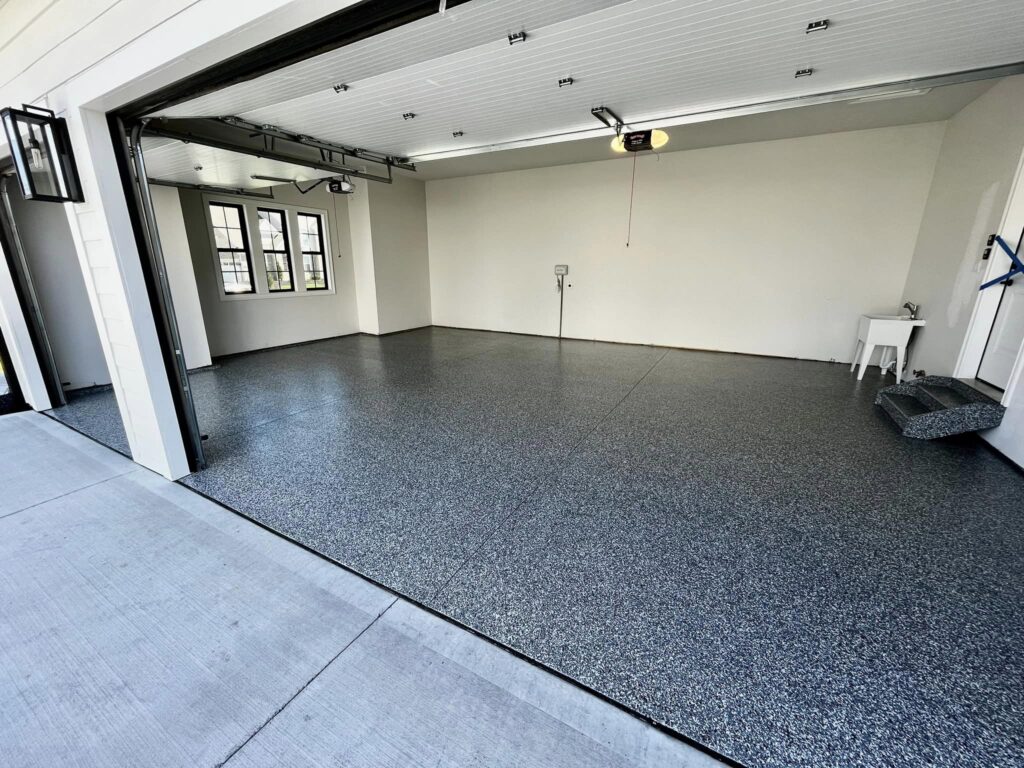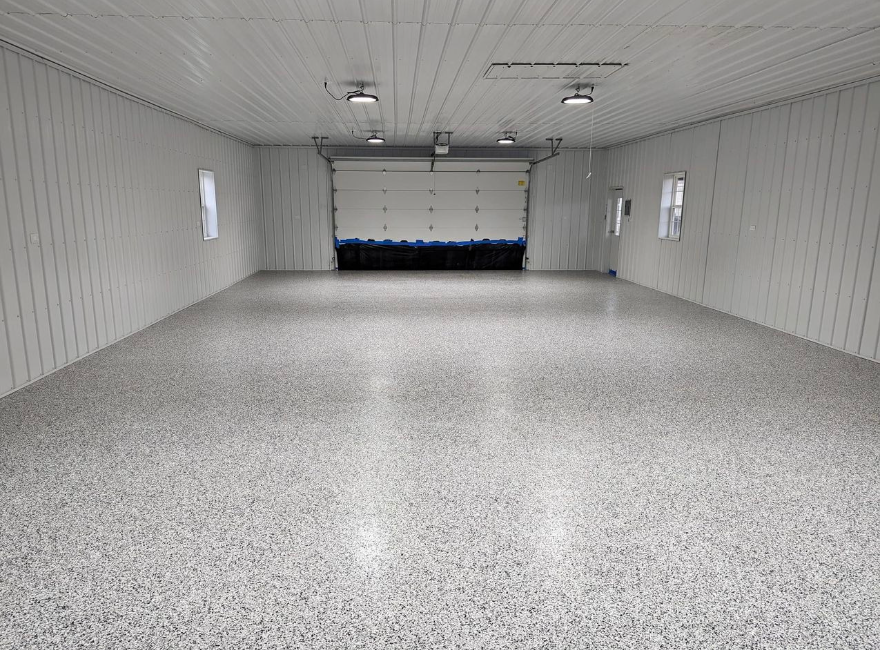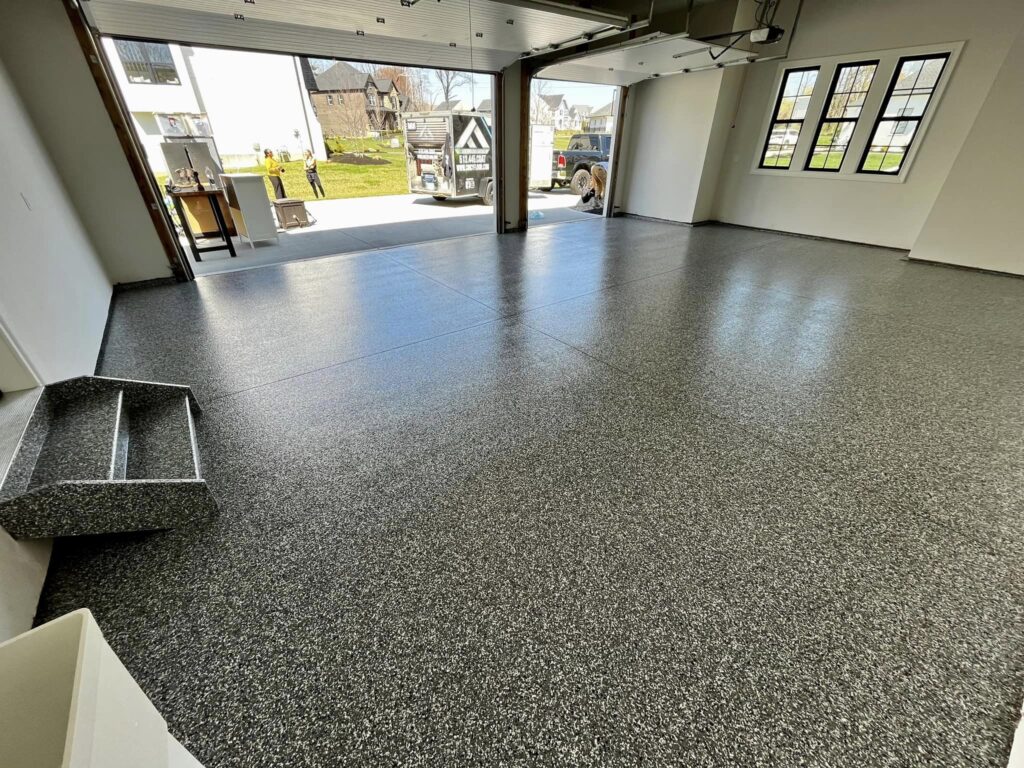One of the most critical aspects of maintaining a beautiful and safe home or business is choosing the right coating for your flooring. Whether it’s for your garage, warehouse, or outdoor space, the right floor coating can help protect your concrete floors and make them last longer.
However, with so many options available, choosing the right coating can be challenging and confusing. That’s why we’ve put together this expert guide to help you understand the different types of floor coatings and how to choose the perfect one for your needs.


Identify your Needs:
The first step in choosing the right floor coating is to identify your needs. Consider factors such as the kind of activity that will take place in the area, the level of traffic it will receive, the kind of maintenance you can manage, and the overall look you want to achieve. To choose the right coating, you should evaluate if you need a coating for slip resistance, abrasion resistance, chemical or oil resistance, or a combination of these.
Know The Different Types of Floor Coatings:
There are several different types of floor coatings available in today’s market, each with its unique features and benefits. Some of the most common types include epoxy, polyurethane, acrylic, and polyaspartic coatings. Epoxy coatings are the most durable and provide excellent chemical resistance, while polyurethane coatings offer excellent gloss retention. Acrylic coatings are perfect for areas with light traffic. Meanwhile, Polyaspartic coatings have a fast cure rate suitable for areas need fast turnaround time.
Consider the Application Method:
Another critical factor to consider when choosing a floor coating is the application method. Some coatings require squeegees and rollers to be applied, while others require airless sprayers. Some require a primer coat and a topcoat application process. If the flooring has a complex pattern, an application technique such as stamping or rolling can be used for the coating.
Ensure a Proper Surface Preparation:
Preparing your floor before applying the coating is also a crucial step. It’s necessary to ensure that the surface is free of oils, contaminants, dust, and debris to ensure proper adhesion of the coating material. The surface can be prepared through methods such as shot blasting, grinding, and chemical etching, depending on the state of the existing flooring.
Choose The Right Contractor:
The final but crucial step towards choosing the right floor coating is selecting the right contractor who can execute the project’s high-quality floor coating work. Experience, skills, and knowledge matter when selecting the perfect contractor for your project. Choose one that uses high-quality products, understands the proper methods, and complies with the manufacturer’s recommendations.


Choosing the right floor coating can be a daunting task, but knowing the fundamental criteria can help you make an informed decision. Once you assess your needs, familiarize yourself with the different types of coatings, consider the application method, and ensure proper surface preparation.
Additionally, seek out a reliable and professional contractor to ensure a successful project outcome. With the right floor coating, you can enhance your floors’ appearance, durability, and longevity for years to come.
LEVEL UP YOUR FLOOR WITH FIRM FOUNDATION
Get excited because your new flooring project is about to take off! And the best part? You can rest easy knowing that skilled experts are taking care of all the nitty-gritty details.
Good To Know
Frequently Asked Questions
The cost of epoxy flooring can vary depending on several factors, such as the size of the area to be covered, the type of epoxy used, and the level of preparation needed before applying the epoxy. On average, you can expect to pay between $5 to $15 per square foot for epoxy flooring, including both materials and installation costs.
Epoxy flooring is a durable and long-lasting flooring option that can be a good investment for both residential and commercial properties. It can withstand heavy foot traffic, is resistant to stains and chemicals, and can be easily cleaned and maintained.
Epoxy flooring is a durable and long-lasting flooring option that can be a good investment for both residential and commercial properties. It can withstand heavy foot traffic, is resistant to stains and chemicals, and can be easily cleaned and maintained.
While it is possible to install epoxy flooring yourself, it can be a challenging process that requires specialized tools and expertise. It is often recommended to hire a professional to ensure a successful installation and to avoid any costly mistakes.
The slipperiness of epoxy flooring depends on the type of epoxy used, the texture of the flooring, and the conditions in which it is installed. Some epoxy flooring options can be slippery when wet, but there are slip-resistant coatings available to increase safety.
Yes, epoxy flooring can be safe for homes with children and pets. By adding slip-resistant coatings or additives, the risk of slips and falls can be reduced. Epoxy flooring is also easy to clean and maintain, which can help to reduce the risk of bacterial growth or other health hazards.
Yes, epoxy flooring is highly durable and is known for its resistance to wear and tear, chemicals, stains, and impact damage. Epoxy flooring is made up of a two-part mixture of resin and hardener, which chemically bonds to the concrete surface to create a strong and durable flooring option. The epoxy coating creates a seamless and non-porous surface that is highly resistant to damage.
Yes, epoxy flooring can be used outdoors, but it is important to choose an epoxy designed for outdoor use. Outdoor epoxy flooring should be UV-resistant and able to withstand exposure to the elements. Outdoor epoxy flooring can also be made slip-resistant to increase safety.
Epoxy flooring is a durable and long-lasting option that can last for several years if properly maintained. With regular cleaning and maintenance, epoxy flooring can last up to 20 years or more.
Some benefits of epoxy flooring include:
- Durability and long-lasting performance
- Resistance to stains and chemicals
- Easy to clean and maintain
- Customizable design options
- Improved safety through slip-resistant coatings
